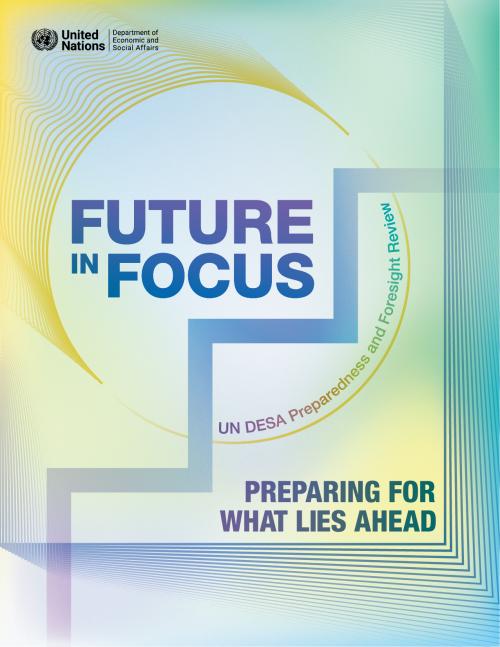
In an era marked by complex and interwoven crises, the role of the United Nations in preparing for the future has never been more critical. This review of UN DESA’s foresight and preparedness efforts shows how the Department’s economic and demographic forecasts, capacity development programmes, and work towards accelerating an inclusive and just transition help governments and people make strategic choices to shape and prepare for the future they want.
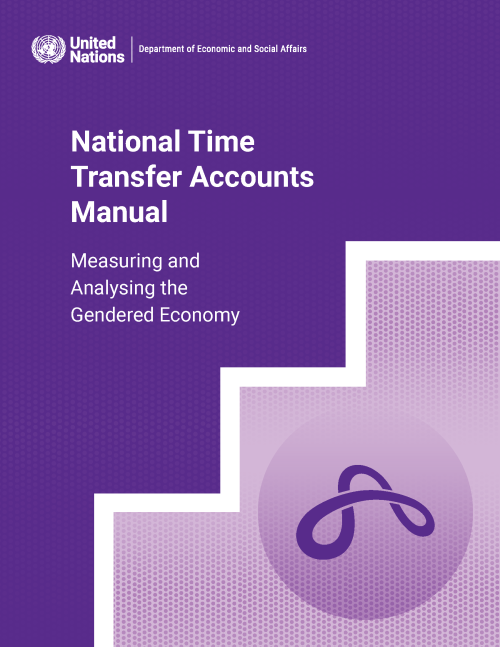
This manual picks up where the previous manual in the series left off. The earlier manual, on the methodology of National Transfer Accounts (NTAs), shows how National Accounts data can be used to construct age profiles of economic production and consumption and to illustrate how resources flow from persons in age groups producing more than they consume to those in age groups producing less than they consume (United Nations, 2013).
The NTA project calls this system of age-based transfers the “generational economy”. Uncovering and elucidating the role of such transfers has been the project’s major contribution. NTA research has revealed how countries have evolved various means…
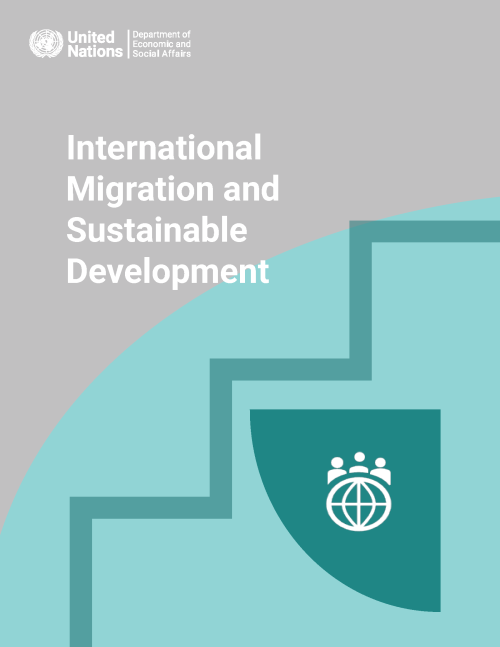
International Migration and Sustainable Development examines the linkages between international migration and the social, economic and environmental dimensions of sustainable development. It discusses how international migration is defined and measured, examines levels and trends in international migration at the global and regional level and by income group, explores the growing scope and impact of international migration and reviews its relevance for achieving internationally agreed sustainable development Goals and targets. The report also offers policy recommendations focusing on the social, economic and environmental causes and consequences of…
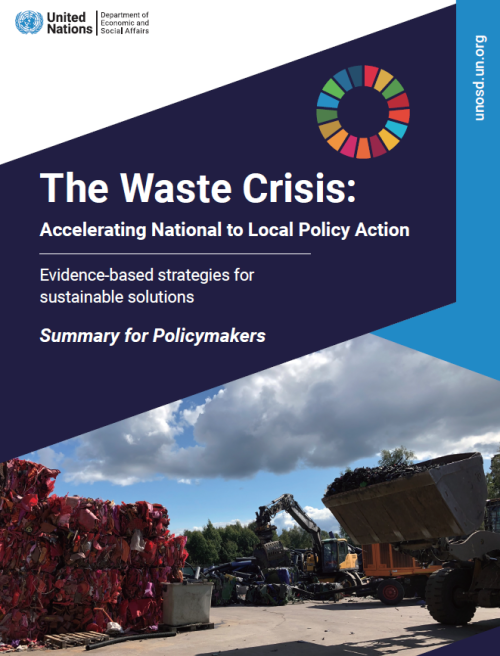
This Summary for Policymakers presents key facts, recommendations and next steps as a summary of the wider publication titled The Waste Crisis: Accelerating National to Local Policy Action Evidence-based strategies for sustainable solutions. The publication addresses the interlinkages between our current global production and consumption systems, which has led to a waste crisis requiring renewed attention on sustainable waste management policy and practice. Developed through a consultative process with inputs from experts across Member States, the United Nations, and civil society,
the report reviews current sustainable waste…
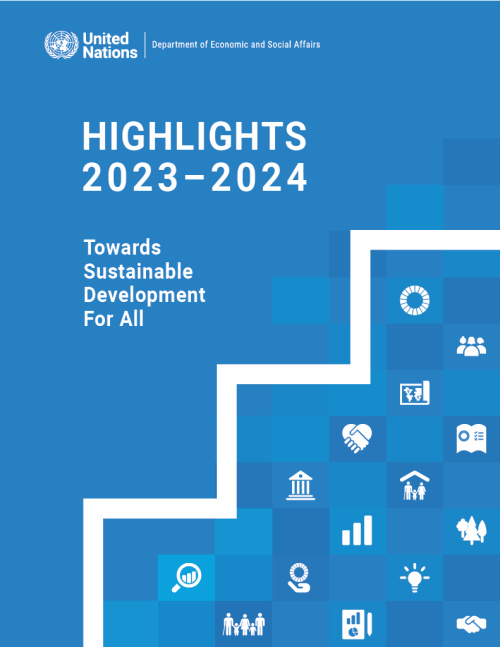
The UN DESA Annual Highlights report is a tool to communicate the contributions of the Department to the realization of internationally agreed development goals and shared social, economic, and environmental aspirations. It showcases the Department’s role in gauging trends, building capacities, and shaping solutions. UN DESA Highlights 2023–2024 covers activities over the period of the 78th Session of the General Assembly (September 2023 – August 2024) and reflects the Department’s response to the set priorities and expressed needs of Member States. Seven (7) thematic chapters showcase how UN DESA put its expertise to the task of supporting Member State efforts to implement the 2030…
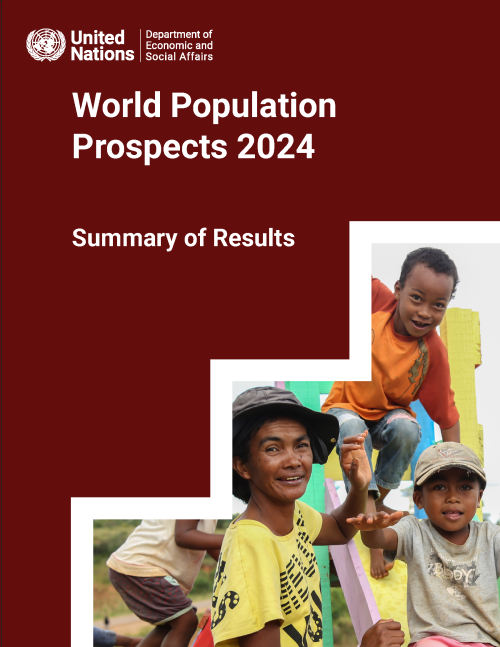
World Population Prospects 2024: Summary of Results adopts the analytical framework of the demographic transition—the historic shift towards longer lives and smaller families—approximated here by the timing at which populations peak in size, to explore differences in population trends that characterise countries and regions today and provide insight into their future trajectories. The report also offers policy recommendations to prepare countries for a population size, age structure and spatial distribution that may differ appreciably from that of their recent past.
World Population Prospects 2024 is the twenty-eighth edition of the official United Nations population…
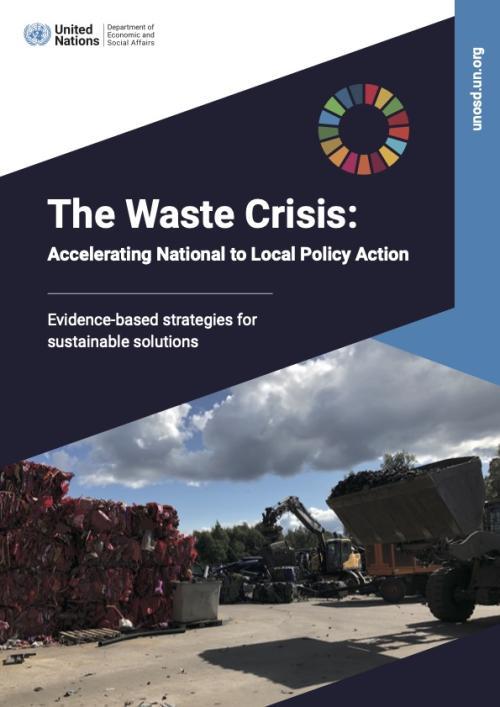
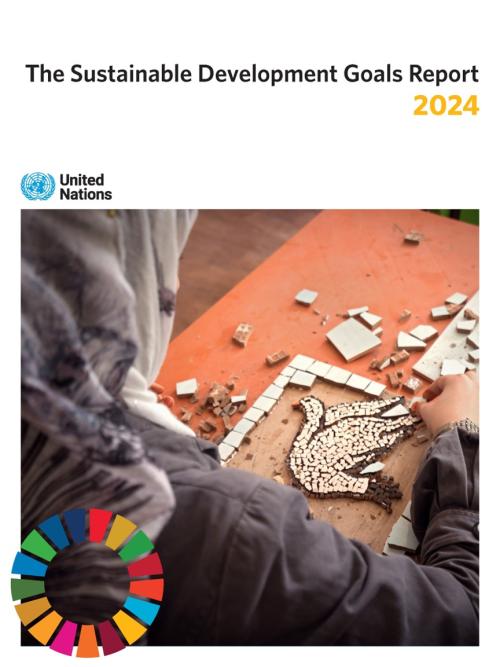
The Sustainable Development Goals Report 2024 details the significant challenges the world is facing in making substantial strides towards achieving the SDGs based on the latest data and estimates. It features areas with setbacks while also showcasing where tangible progress has been made, for instance, in reducing global child mortality, preventing HIV infection, and access to energy and mobile broadband. The report also highlights where action must accelerate, particularly in critical areas undermining SDG progress - climate change, peace and security, inequalities among and between countries, among others.
According to the report, with just six years remaining, current progress…
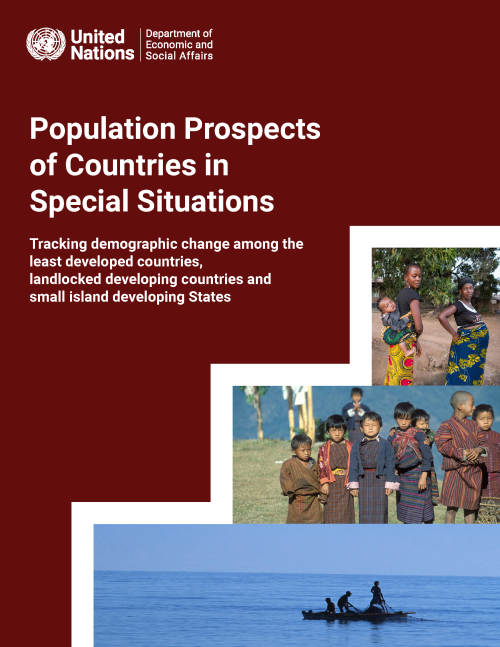
Population Prospects of Countries in Special Situations provides an up-to-date overview of current and future major population trends in the LDCs, LLDCs and SIDS in connection with the opportunities and challenges these trends present for achieving sustainable development. This report highlights levels and trends in population size and distribution, mortality, fertility and international migration, including projections to 2050, for the 110 vulnerable countries or territories, while also discussing the implications of population change for achieving specific Sustainable Development Goals.
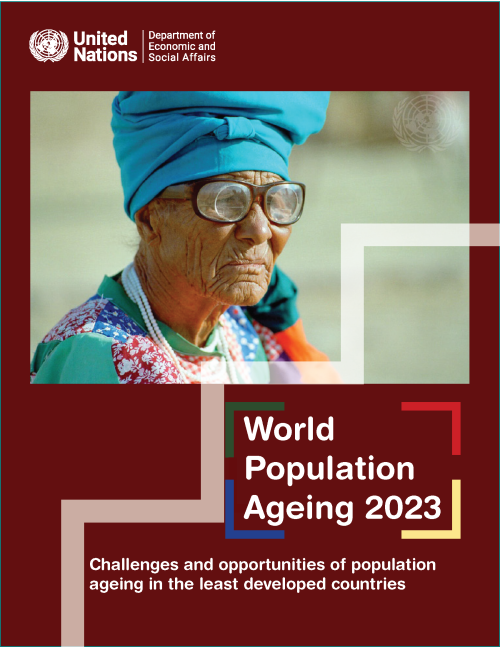
Population ageing is an inevitable outcome of the demographic transition — the historic shift from higher to lower levels of fertility and mortality that yields a period of rapid population increase and, eventually, an older population that is much larger as a share of the total. While more developed countries have completed or are well advanced in this transition, less and least developed countries (LDCs) are predominantly in the early or middle stages, when the older population is still small but starting to grow. Such countries can anticipate a continuing, gradual increase in both the number and the share of older persons, many of whom will require substantial care and support at some…
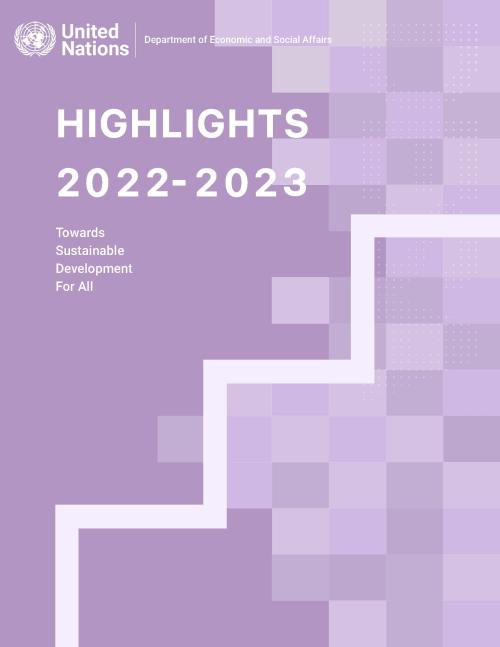
The UN DESA Annual Highlights report is a tool to communicate the contributions of the Department to the realization of internationally agreed development goals and shared social, economic, and environmental aspirations. It showcases the Department’s role in gauging trends, building capacities, and shaping solutions. UN DESA Highlights 2022-2023 covers activities over the period of the 77th Session of the General Assembly (September 2022 – August 2023) and reflects the Department’s response to the set priorities and expressed needs of Member States. Seven (7) thematic chapters showcase how UN DESA put its expertise to the task of supporting Member State efforts to implement the 2030…
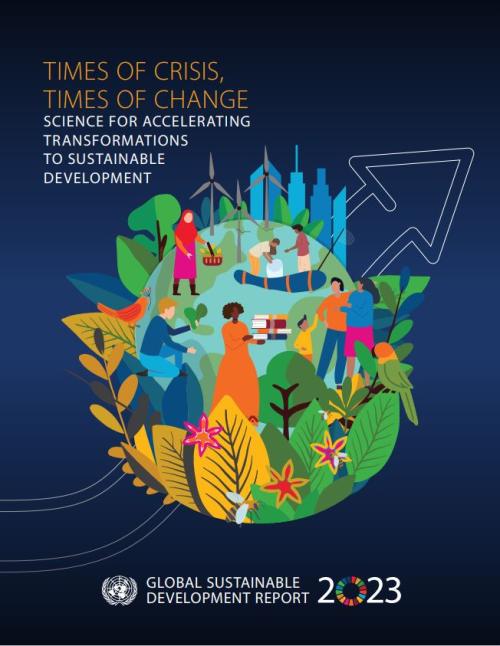
Times of Crisis, Times of Change: Science for Accelerating Transformations to Sustainable Development", the 2023 Global Sustainable Development Report (GSDR), finds that at this critical juncture, midway to 2030, incremental and fragmented change is insufficient to achieve the Sustainable Development Goals (SDGs) in the remaining seven years. Implementation of the 2030 Agenda requires the active mobilization of political leadership and ambition for science-based transformations. This must be achieved globally - leaving no country, society or person behind. The report is an invitation to embrace transformations with the urgency needed to accelerate progress towards the SDGs.
The…
 Welcome to the United Nations
Welcome to the United Nations